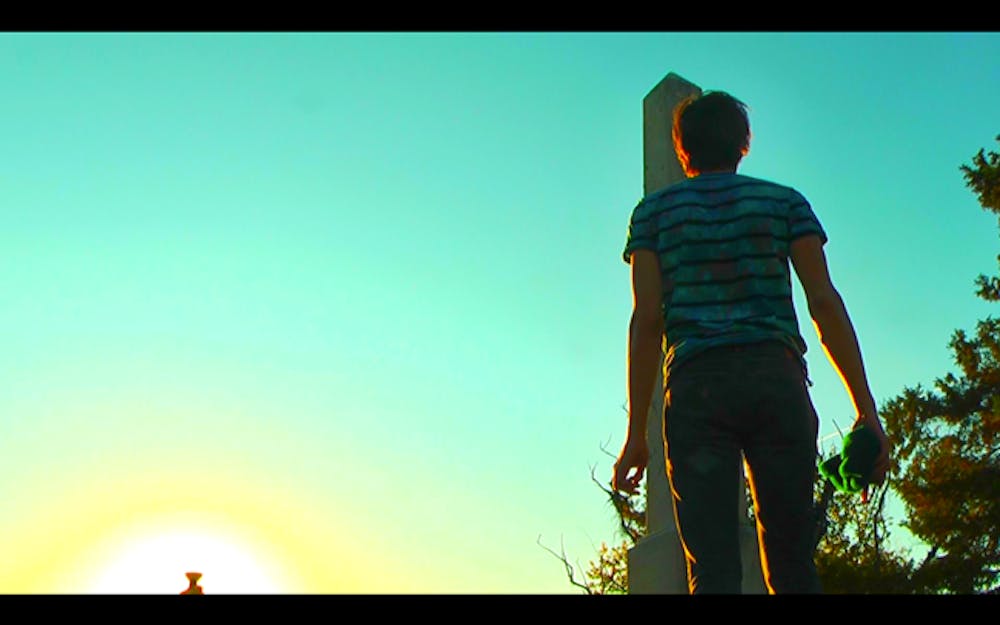There’s a story many aspiring filmmakers know — probably because it’s a ‘George Washington and the Cherry Tree’–style trope of mainstream film history — that tells of a youthful Steven Spielberg, back when he interned at Universal Studios. In 1968, so the story goes, the young cinephile made a short film called Amblin’, a film so precocious that Sid Sheinberg, Universal’s Vice President, watched it and subsequently offered him a job. The moral of this story is a clear warning never to underestimate a 20–something–year–old with persistence and a movie camera.
Last week, Penn celebrated similar student visionaries — Penn’s annual Student Film Festival, an observance of 44 student–made short films ranging in genre from documentaries to fantasies to montages. The first three nights of the festival split the premieres into thirds, showing each batch at a different College House. The fourth night, three winners are chosen. This year, Fine Arts student Connie Ko’s animated, avant–garde Bartok’s Traction Factory won third place, Cinema Studies and English major Dylan Hansen–Fliedner’s experimental piece about the mind on LSD, Exalted, took second, and graduate student Noam Osband’s grim documentary of an Arkansas livestock auction, Searcy County, won first. The films made by the 12 finalists were of varied genres, but were meticulously constructed and cleverly composed. While many of the films were created for Penn’s filmmaking classes, others had been churned out as individual projects. Ko says of her film, an amalgam of grainy animation and naturalist footage set to a backwards Bartok piece she recorded with friends, “For my Fine Arts senior thesis, I was experimenting with ways to capture stream of consciousness and thought processes. I’d been striking out this entire past semester, so I went home over Spring Break to start over and return to my roots.” Timothy Lee, whose Chinatown is a neon–lit montage of the titular district at night, says, “There’s a feeling you get about Chinatown — I tried to capture it.” And Sam Pasternack says of his Call Me Anything, a documentary about guitarist and Wharton student Ronnie DiSimone, “When you’re given the opportunity to make a documentary in a class like Video I, you better find an interesting subject. At Penn, that’s not too hard to do. Every doc subject should be like Ronnie.”
The film festival submissions seek to raise awareness of obscure subjects, or focus exclusively on special concepts; the short film is a concise, microscopic medium that can illuminate the unnoticeable, or capture the fleeting, as well as recount a meaningful story. Laura Bowes’s dark comedy Lemons, for example, is a witty, wry play on the simple concept of making the best of a terrible day, while Osband’s Searcy County is a steady day–in–the–life peek at unfamiliar reality. “I wanted to capture that small world,” says Osband, who studies anthropology.
Enthusiastically promoted by Nicola Gentili, Associate Director of the Cinema Studies program, the Penn Student Film Festival is the perfect environment for film education. Hansen–Fliedner plans on making a career out of his win; he’s started a production company with friends, “Lunar Cycle Productions,” and expects to expand his repertoire in short form, as well as other artistic areas.
Penn’s Student Film Festival reinforces the importance of making films to understand them in both technical and academic lights. These thesis–like shorts are part of Penn’s underground curriculum, where learning is accomplished by creating. “I think that anyone can make a film,” Hansen–Fliedner grins, “and I think that everyone should.” This is the age of the short film — an era when YouTube videos stream incessantly, and where there are two Academy Award categories for short subject pieces. Film education is rarely promoted at this level, which is a wonderful development that will allow students to become filmmakers, and filmmakers to remain students.
Here's a link to Noam Osband's Searcy County.

